Croatian Catering and Hospitality Sector Enjoys 28% Higher Turnover
May the 6th, 2023 - The Croatian catering and hospitality industry has enjoyed 28 percent more turnover in April 2023 when compared to the same month last year. While this is good news, it also speaks volumes about Eurozone accession and price hikes.
As Jadranka Dozan/Poslovni Dnevnik writes, cafes, restaurants and other Croatian catering and hospitality facilities which deal with the preparation and serving of food and drinks and which are in the fiscalisation system registered 221.6 million euros in turnover last month.
In April of last year, slightly more than 1.3 billion kuna, or 173 million euros, passed through the fiscal cash registers in the Croatian catering and hospitality sector, which means that the value of the bills issued this year is 28 percent higher.
Such an increase in fiscalised turnover was achieved due to a five percent higher number of invoices and bills issued, and in addition to the possible influence of the consumption structure, this also speaks volumes about price hikes and Croatia's new currency - the euro.
In any case, the data kept by the Tax Administration shows that in the Croatian catering and hospitality industry (the activity of preparing and serving food and beverages), fiscalised turnover increased more strongly than at the level of all activities covered by fiscalisation, where turnover which is one fifth higher has been recorded.
The main "harvest" for the Croatian catering and hospitality sector is yet to come, and of course by this we mean the height of the summer tourist season. For example, last year, a total value of 22.5 billion kuna or three billion euros was paid by both cash and card to enterprises across the country engaged in the preparation and serving of food and beverages, and 56 percent of that was paid out in the period from June to September alone.
Cumulative data for this year shows that the beginning of the second quarter of 2023 in the Croatian catering and hospitality industry brought somewhat stronger annual turnover growth than in the first. From the beginning of this year to the end of last month, taxpayers in the catering and hospitality industry reported almost 709 million euros in turnover to the tax authorities, which is 20 percent more than in the comparable period last year.
In the first four months of 2022, more than 4 billion kuna, or 590 million euros, passed through their fiscal coffers.
In the activity of providing accommodation, which is closely linked, April's data signals an acceleration of annual growth compared to the first quarter, which concluded with a 34 percent increase in fiscalised turnover. Last month, accommodation services saw an inflow of cash in the amount of almost 104 million euros, paid with both cards and cash, which is 43 percent more than last year's reported amount of 547 million kuna (73 million euros).
For more, make sure to check out our dedicated news section.
Adriatic Gastro Show Opened in Spaladium Arena in Split
February 2, 2023 - A prominent international festival of gastronomy and tourism, the Adriatic Gastro Show, opened on Wednesday, the 1st of February, in the Spaladium arena in Split.
All visitors to the festival will have a chance to see the equipment for catering facilities and food preparation in the hospitality and tourism industry for the next four days, writes 24Sata.
"About eight hundred exhibitors from thirty-seven countries will be presenting on 12,000 square meters of space. Therefore, the visitors will be able to see all the novelties for equipping hospitality establishments as well as all the novelties related to the preparation of food and drinks for the hospitality industry," said the director of the fair, Josip Bužančić.
He added that everything that hospitality and tourism professionals might find interesting for themselves or their businesses would be presented at the fair.
Before the opening of the Adriatic Gastro Show, however, the mayor of Split, Ivica Puljak, expressed that he was against hosting the Adriatic Gastro Show in the Stadium arena. As he pointed out, the Spaladium Arena was closed at the end of last year. On the other hand, the bankruptcy administrator of the company that manages the Spaladium Arena (Sportski grad TPN), Natalija Mladineo, pointed out that the contract for the fair was signed with the company "Poslovi mediji" in May last year, long before the Arena was closed at the end of December.
The director of the Adriatic Gastro Show, Josip Bužančić, simply and shortly commented that, as organizers, they are not interested in politics.
"The owner of the Spaladium Arena is neither the City of Split, nor the Split-Dalmatia County, nor the state. Spaladium Arena is a private facility where the private company 'Poslovni mediji' is organizing this event. We just want to do our job," said Bužančić.
For more, make sure to check out our dedicated News section.
Aminess Already Recruiting in Croatia for Tourist Season 2023
November 13, 2022 - In addition to the standard conditions offered by most hotel chains, Aminess proudly points out that they have a seasonal bonus for employees of HRK 8,000, a Christmas bonus, holiday pay, children bonuses, as well as jubilee awards, and unique employee reward programs.
As Poslovni writes, Aminess hotels and camps are the first tourist company to start the search for seasonal workers next year. The campaign with the appropriate name 'Where colleagues become friends", as they say from this company, should enable them to be the first to pick the best workers looking for a job in tourism. Their hotels and camps from Istria, Krk, to the south of Dalmatia will be looking for more than a thousand workers for next season. In addition to the domestic market, the campaign is also aimed at countries in the region.
"As for employment trends, we expect them to be similar to last year. One thousand employees, with emphasis on cooks, waiters, bartenders, maids, and receptionists. This year, we are starting the recruitment campaign earlier. In January, we plan to participate in various fairs, which is a great opportunity for us to get to know our employees and for them to get to know us. We will communicate all details, positions, and conditions on our social networks", said Marina Jurić, director of human resources
In addition to the standard conditions offered by most hotel chains, Aminess proudly points out that they also have a seasonal bonus for employees of HRK 8,000, a Christmas bonus, holiday pay, children bonuses, compensation for the birth of a child, as well as jubilee awards and special employee reward programs - for the employee of the year, the employee of the month, and a prize of HRK 10,000.
"We are investing HRK 1.5 million in employee education and development in the coming period. The challenge of finding workers has been present for years; we bridge it by offering them benefits and a friendly environment. By fostering such a culture, we want to reach the best and highest quality people who want to work in tourism. With the new campaign, we are looking for people who share our values and are ready to learn. We are looking for thousands of new friends open to learning, and we have several professionals to teach them. We are a company that seasonal workers are happy to return to; salary and benefits are the best reason for that, followed by the importance of learning and training that we organise and learning at the workplace from experienced colleagues. It is the Aminess atmosphere, where employees consider their colleagues to be their friends, help each other in challenges, and celebrate all successes together", Jurić pointed out.
Dalibor Matovina, director of operations, points out that they are particularly proud of that education segment, for which this company is already well known and recognised.
"We are already established for education in the food and beverage segment, but we do that in all the aspects - from reception to wellness, and we find educators on the domestic market, but we do not hesitate to reach out to foreign partners, and now we have a new partner in this for the department of housekeeping and reception which works for world-famous hotels. You can move up with us from seasonal employment to, say, the director of an object; we have several such examples," said Matovina.
Damir Čekić, director of the food and beverage department, referred to Aminess Gourmet and Aminess Lab, where top chefs and experts share their knowledge and raise the quality of the offer and the employees' skills.
"Our main idea was that people do not leave but stay part of the team; we started with dinners with Skoko, Hrvoje Zirojević also joined, as well as Matija Bogdan, and a new face is coming this year - Melkior Bašić. Our employees learn from the best. They work on themselves and gain knowledge. In addition to chefs, we also have education for bartenders and baristas. Next year, in addition to new associates who will bring new knowledge, we have the idea to raise this whole story to a higher level and to make our fine dining even more recognisable. We set the standards in our 5-star hotel, which was the last to enter our portfolio, we talked, worked, and learned every day, and most importantly, we created our own; we never copied others", said Čekić.
Martina Labinjan has been a member of the Aminess team for seven years. She emphasizes that the main advantage of working for this company is that everything is easy with them. As she says, it is simple to agree with them, the conditions are excellent, and progression is possible.
"I started as a seasonal worker; at the beginning, I was an assistant confectioner, and today I am the manager of the confectionary department. In those seven years, I met top experts. They enabled me to grow and develop," said Labinjanin.
For more, make sure to check out our dedicated Lifestyle section.
YTD Financial Indicators Give Rise to Hope That Tourism Season Can Be Great
ZAGREB, 25 Aug, 2021 - Overnight stay numbers so far this year show that they have reached 74% of tourist nights in the corresponding period of 2019, whereas the value of the fiscalised receipts indicates even a better performance of the tourist sector, Minister Nikolina Brnjac has told Hina.
The year-to-date value of the fiscalised receipts in tourism-related economic activities has reached 79% of those receipts in 2019.
The minister admits that it is still too early to forecast the fiscal effects of this year's tourism season.
The comprehensive report on the revenues from the tourist trade can be expected upon the release of the relevant report by the Croatian National Bank on the spending of foreign holiday-makers in the third quarter of 2021, and the central bank provides the general public with those numbers at the end of the year.
The data collected by e-visitor system show that so far this year, there have been 9.8 million guests who have generated 61.3 million overnight stays, thus reaching 64% and 74% of the visitor numbers and tourist night numbers in 2019.
So far in August alone, there have been 3.4 million visitors and 24.1 million overnight stays, 87% and 92% of the results in the corresponding period in 2019.
Concerning the value of fiscalised receipts in the tourism-related activities, it stands at 14.9 billion kuna, or 79% of the value registered in the corresponding period of 2019 when Croatia's tourism sets new records.
In August, fiscalised receipts' value overtakes 2019
For instance, from 1 to 17 August the value of fiscalised receipts reached nearly four billion kuna, or 20% more than in the same period of 2019, Brnjac said.
The value of the fiscalised receipts from 1 July to 17 August outperformed the corresponding period in 2019 by 9%, the minister said.
She said that the bookings for the remainder of the year also gave rise to optimism.
"We are striving for keeping Croatia's status of the Mediterranean country with the most favourable epidemiological situation," she said, among other things.
For more about business in Croatia, follow TCN's dedicated page.
Croatian Author Igor Pavela on Hospitality and His Scientific Book
August 12, 2021 - Croatian author Igor Pavela who wrote the first Croatian scientific book on hospitality, is currently waiting for the book to be translated into English. TCN reporter Ivor Kruljac met up with Pavela to discuss both the book, but also the current situation in the Croatian hospitality sector.
April 2021 saw the release of ''Excellence as a Standard in Hospitality Business'' (Izvrsnost kao standard u ugostiteljskom poslovanju), the first Croatian scientific book on hospitality in which author Igor Pavela explored what it takes to successfully run a business and ensure both an excellent offer and enjoyable atmosphere for the guests.
The book's author, Igor Pavela, has been in the hospitality business for the past 16 years. He has gained invaluable experience in various aspects and from multiple positions. Back in April, he was a manager in one of the largest American cruise ship companies and today works for the Maslina Resort in Stari Grad on Hvar island.
He has closely worked with top managers and CEOs of various big international tourism and hospitality companies in his rich career, and he also found time to train management and other employees with his educational material helping them to increase the quality of their overall standard. The educational materials Pavela has written for his training sessions eventually pushed him to write this book, now reviewed and praised by the academic community both in Croatia and in the wider region.
The book boasts a combination of his personal work experience and extensive scientific research encompassing marketing, communication and even ethics (to name just a few), and how one can go about applying it to hospitality sector success.
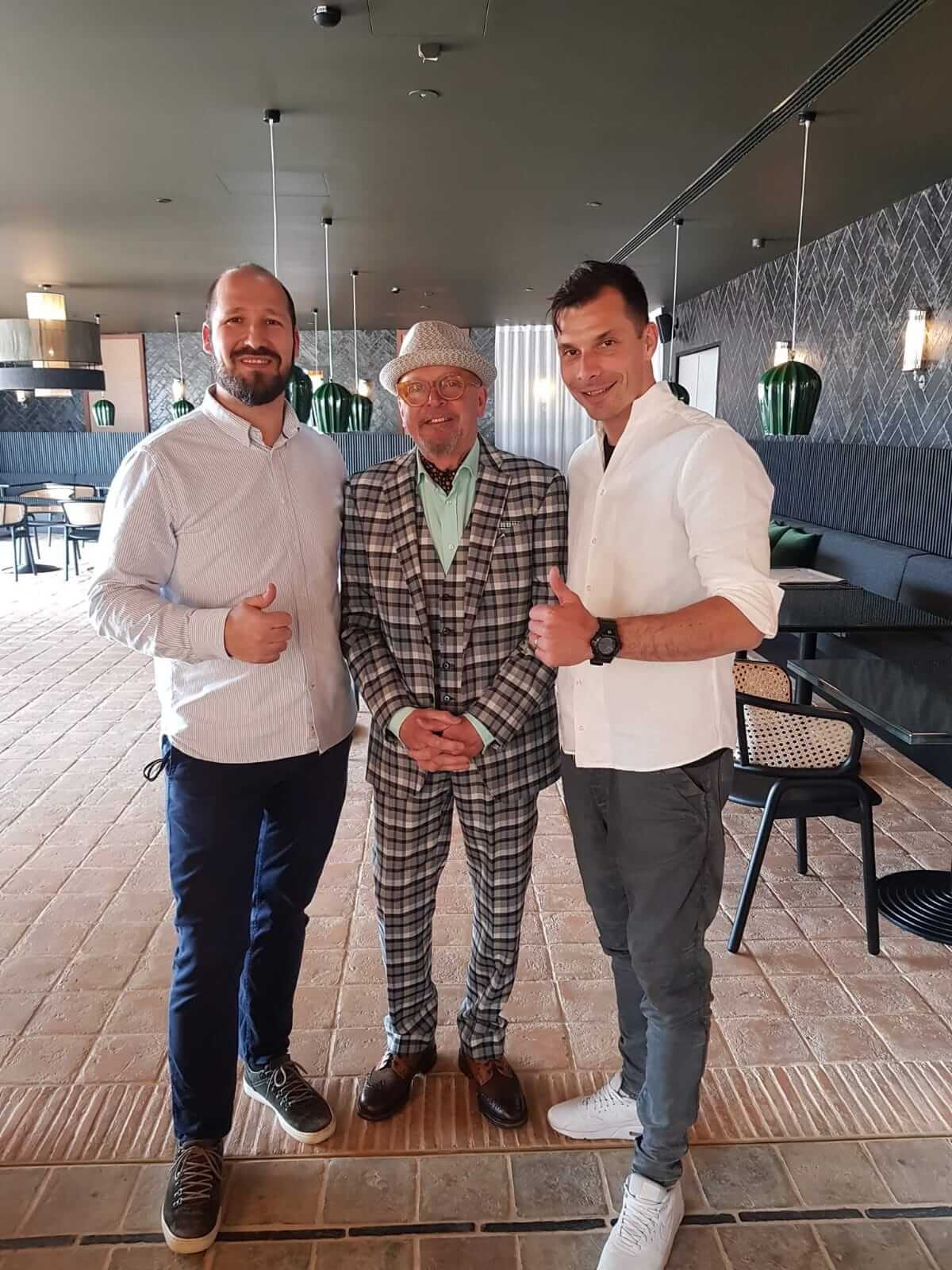
Maslina Resort management team. From left to right: Mario Kolumbic Maitre'D , Chris Edwardes as consultant, Igor Pavela Bar Manager © Maslina Resort
Ground rules in one place
With academic opinion being relevant for knowledge when it comes to scientific literature, Pavela, at the very start of the interview, also said that the first version of the book, which was constructed as his personal business manual, was reviewed by his close friends, colleagues, and ex-partners, all those who have been established in the hospitality business for decades.
''The first information I got as their feedback was that they'd never seen such valuable information presented in a way which is both easy to read and easy to implement. It combined the scientific research that provides the facts and my personal experience which I tried to pass on in the book like a tutor would in order to say what works and what doesn't,'' recalled Pavela.
Pavela pointed out that the hospitality sector encompasses a very broad range of occupations, and there are differences between cruise ships, fine dining restaurants, nightclubs, hotels, and other types of hospitality businesses. With that being said, there are also basic ground rules that are the same for every type of function. His colleagues who learned what works in business the usual way, by experimenting and seeing how things work out before changing and adapting things, rated the book in such a positive way, and Pavela looked more than happy with the impression his writing had had on others in his field so far.
With support from University College Aspira that both published and also held a book presentation for their former student, significant developments are happening for the book as it is currently being translated into English. With the global market not really having a scientific book of this kind under its belt yet, the options seem endless once the translation is complete. Ambitious but realistic, Pavela revealed further plans for the book.
''The book just recently came out in April (it could've come out earlier, but we waited for the unprecedented and catastrophic period for hospitality as a result of the pandemic to calm down). The translation will take around a month and a half to be completed by a professional agency that we hired, and after that, it will be reviewed. As the Croatian version was given to three doctors of science to be reviewed, it will also be reviewed by three very well-known and established names before going out onto the European market. They will, upon agreement, get an example of the book to review it and score it objectively,'' explains Pavela.
He continued by explaining that the book is now the subject of negotiations with a very known high-level sponsor in the hospitality sector. While not being able to reveal the name of the sponsor, Pavela says this sponsor plans to open an academy and to educate their staff based on Pavela's book, which is making its way to hospitality-related education in Croatia, from those in high school to those in higher levels of education. In addition, there is a plan to distribute the English version as an electronic book. The plan is to connect with big e-book distributors such as Amazon to make the book accessible globally, for students, professionals, those who want to start their business and those who are just curious readers with a desire to learn more.
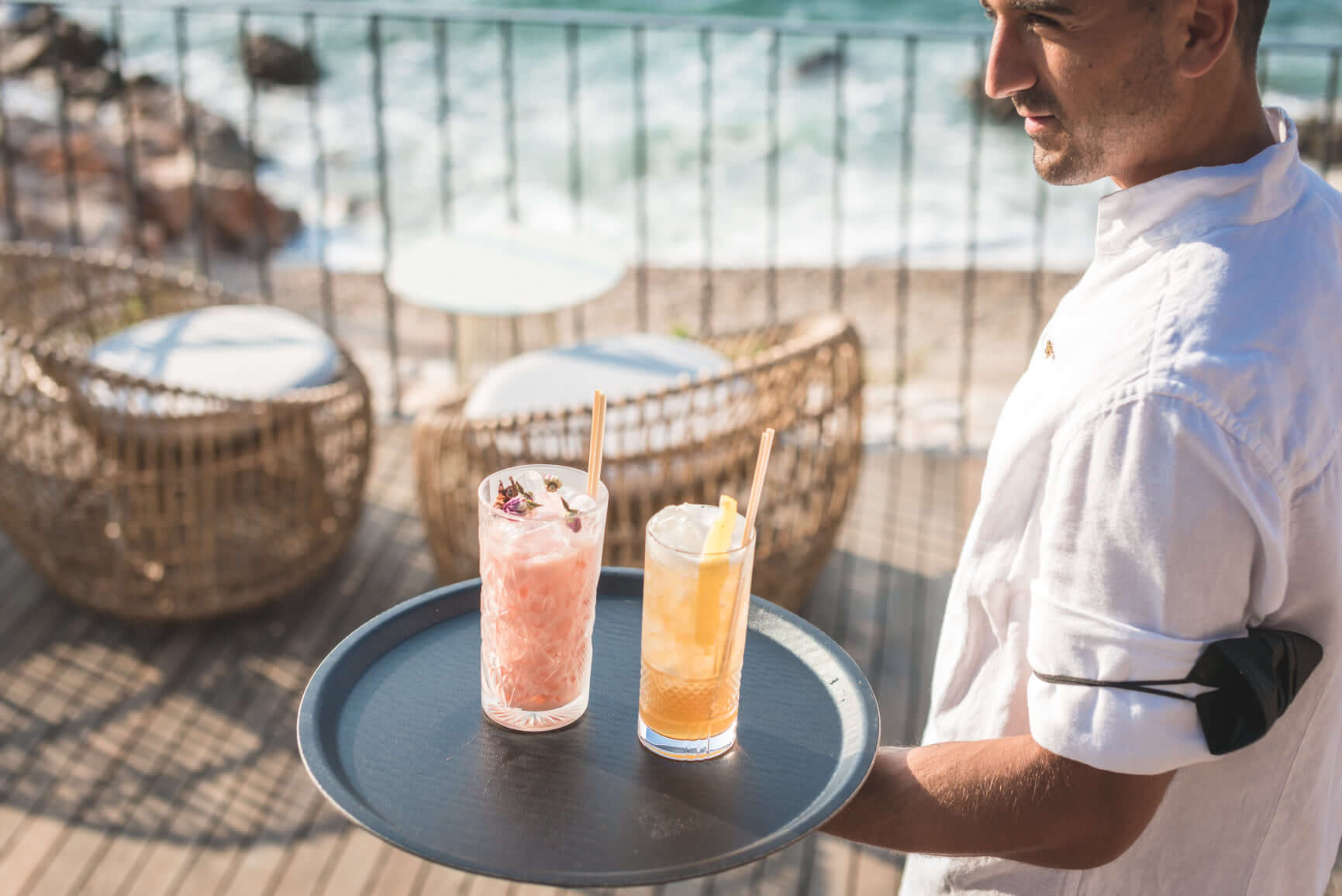
© Maslina Resort
Switzerland is the place for experimental physicists thanks to CERN, Japan is doing wonders in robotics, and American and British scientists are making significant historical contributions to the fields of sociology and anthropology. Maybe this book would position Croatia as a leader in scientific observations of hospitality. When asked about this, Pavela said that it is a wonderful idea, and his greatest desire.
"My first intention when I started writing this book was to collect all global experience, which is different, if not more advanced than what is garnered in Croatia alone. I wanted to bring it home because at the end of the day, this is my home and where my heart belongs. Croatia has natural resources that need to be used more, and that also means not just promoting them, but we should be on the level required to be the high-level destination to attract high-level clients from all over the world.
I think Croatia, unfortunately for years now, hasn't been at the required level, and there has been a sea of negative comments from guests as a result. There were good sides too (tourism has been growing more and more since the Homeland War), but from the side of science, we have to see the negative sides because that's something we need to look at in our analysis and research to see what is wrong and why something is wrong so that we can work on it,'' explained Pavela.
The up-to-date research needed to scientifically and successfully explore what works and doesn't work truly needs to be constant, and the spirit of that mentality is reflected in the fact the book already has references and findings in regard to COVID-19.
Hospitality isn't just business but a purpose, too.
When it comes to things that need to be worked on, Pavela pointed out that many people in Croatia who work in hospitality are students and people who don't really take much interest and aren't really educated in the sector, thus bringing down the level of the country's hospitality services in general.
Within twenty minutes of interviewing Pavela, it became clear that he talks about hospitality with the kind of passion that isn't unusual to see among journalists or maybe even lawyers and doctors for their fields, professions who are generally quite romanticised in pop culture and where workers in the field don't view it as a job to put food on the table, but rather a call to contribute to better future. However, it is very unusual to recognise such passion for hospitality among people. How does one find such a spark in an field most people only view as a side job to achieve some higher goal? I asked.
''In one specific moment, I saw hospitality from a completely different level. I was still involved in the operational part of the industry, the back of the counter, serving and having conversations with hundreds of people every day. At one point, I had this click in my mind where I realised that just as food and water are a necessity for the body, these places of socialising are food for the soul that will not disappear even as the world changes with all this technology,'' Pavela said, recalling how he first fell deeply in love with hospitality.
He looked around the beach bar where we sat with delight, which, if more people could recognise it, would no doubt make your morning coffee in a cafe be taken in with a completely different view.
In recognising the energy which takes place when socialising after a hard day at work or school, he saw all members of the hospitality sector, from the highest decision-making managers to the waiters, as actors all involved in the collective task of making socialising as good as it can be.
''Hospitality isn't just an economic transaction of buying a product, here we offer so much more. Our service can make someone's day,'' said Pavela proudly, reminding me of how business deals, relationships, friendship and so much more is formed in a great atmosphere of hospitality service, thus really making a difference to the world.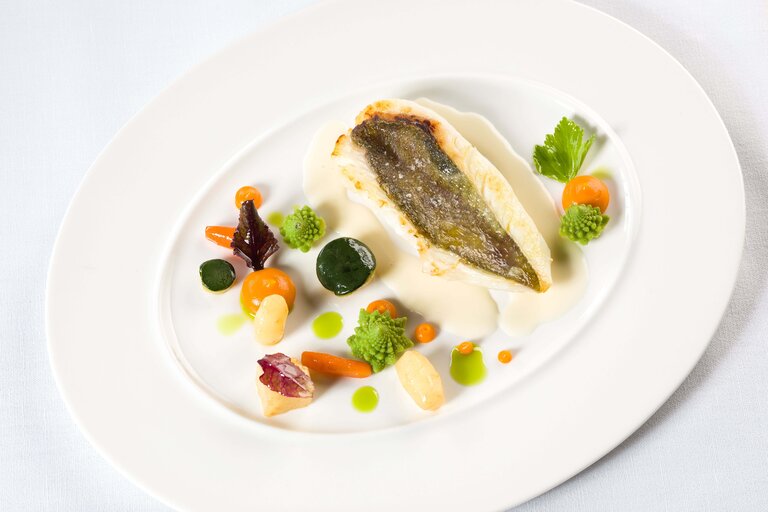
Maslina Resort's Mediterranean John Dory © Nikola Radovani
As you read through the book, Pavela stays true to his words, pointing out good examples but also bad ones from which other employees and owners can learn what to avoid. Despite positioning some of the aforementioned negative practices to his hometown of Split and the wider Dalmatia area, Pavela at no point mentioned a specific name or a venue that fitted any negative practices. Pavela is sure this doesn't damage scientific data and gathered knowledge, and his scientific objectives are evident in him not name dropping people or places that have good practices either. In this way, he avoided the potential accusations that his book is either paid trash talk or a paid word of praise for some business, which would put a serious strain on Pavela both as a scientific observer and as a hospitality professional.
''When you're writing something like this, it's a very sensitive thing. The purpose of the book isn't to call anyone out for doing bad things, and I don't think that should be in the book. If somebody does something bad and it ends up in the news or with them being sued, then there are other ways to learn about that. The book is about focusing on changing bad practices to positive ones, and even though I had specific places and names in my head, I didn't want to bring them out and sound unprofessional,'' explained Pavela.
''What I want is for those people behind positive and negative examples to recognise themselves,'' he said.
Solidarity should trump competition when building a destination.
In the end, this book of science and practice has an aim of helping others improve their own business. That wouldn't be weird if Pavela had already retired from the business, but with his active employment for Maslina Resort, an outsider's point of view might leave you thinking whether or not it is wise to ''spill the beans'' and all the tricks of the trade as direct competitors could out beat the master as the students of his findings and knowledge. That's a very logical question from outside, but Pavela only smiled with confidence as he assured me that this book's release would neither sabotage himself nor his colleagues.
''The beautiful thing about hospitality is there is something for everyone. The more types of hospitality we have present in our destinations, the better, because opening a new bar doesn't mean stealing guests from another bar. It means offering something different. Everyone can find something for themselves. Somebody will want to hit a brew bar. Someone will want a clubbing experience, and so on. Passing on knowledge is not damaging any of the places. The point is that we all grow together in terms of quality and the commitment to what we do,'' elaborated Pavela, revealing solidarity in hospitality which is hard to deduce from the guest's point of view.
As his book clearly elaborates on, it is wrong for a hospitality owner to try to catch everything and everyone with his offer. Specialising and targeting a particular audience (e.g. those who love quality food and wine, leaving out those who want cocktail bars as you focus on improving your gastronomic offer), along with investing in quality ingredients and keeping your workers happy are the key to success, as Pavela mentioned himself. These are just a few of the points you can find in the book, but in the end, it's best you read it for yourself here. Either in Croatian or you can wait a little longer for the English version.
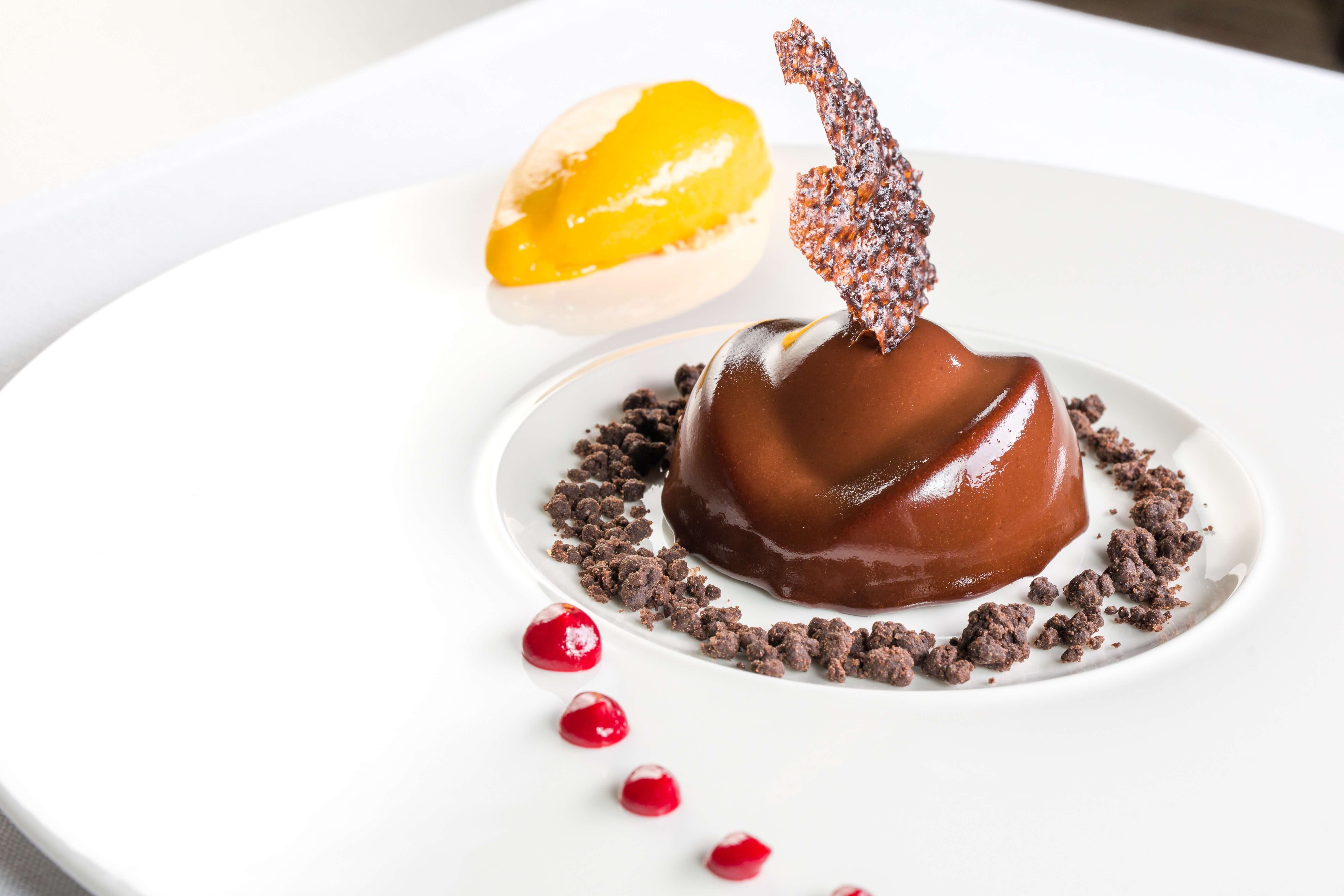
Maslina Resort's Chocolate Cherry Sphere © Nikola Radovani
It's worth remembering that science never sleeps, and with Pavela himself warning of this - the situation is changing constantly. Today's top formula for happy guests may be completely outdated tomorrow. Researching and learning are always welcome in order to show all those involved in this industry the way to providing the best service possible.
Learn more about Stari Grad on Hvar on our TC page.
For more about science in Croatia, follow TCN's dedicated page.
Croatian Beach vs Pool Dilemma: Arguments For Both Sides Overview
August 11, 2021 - Looking at the broad offer of swimming options on Adriatic, you may find yourself in the middle of a Croatian beach vs pool dilemma. TCN reporter Ivor Kruljac found pros for both sides.
With exciting history, heritage, and interesting experiences to be had, coastal Croatia and the Croatian islands known how to sell what they've got. The clear, refreshing, and clean sea has been the most valuable arsenal in Croatia's tourist offer from the very start.
In that spirit, it may seem unusual to see many hotels with glorious sea views and short walks to beaches that have pools, both indoors and outdoors. Sure, the indoor pools are great if you have the misfortunate of some bad weather when you're dying for a swim, but do outdoor pools really make sense next to the lovely Adriatic?
Well, both sides of this argument have valid points. Here is a shortlist of the cases when one dominates over the other in this epic Croatian beach vs pool debate.
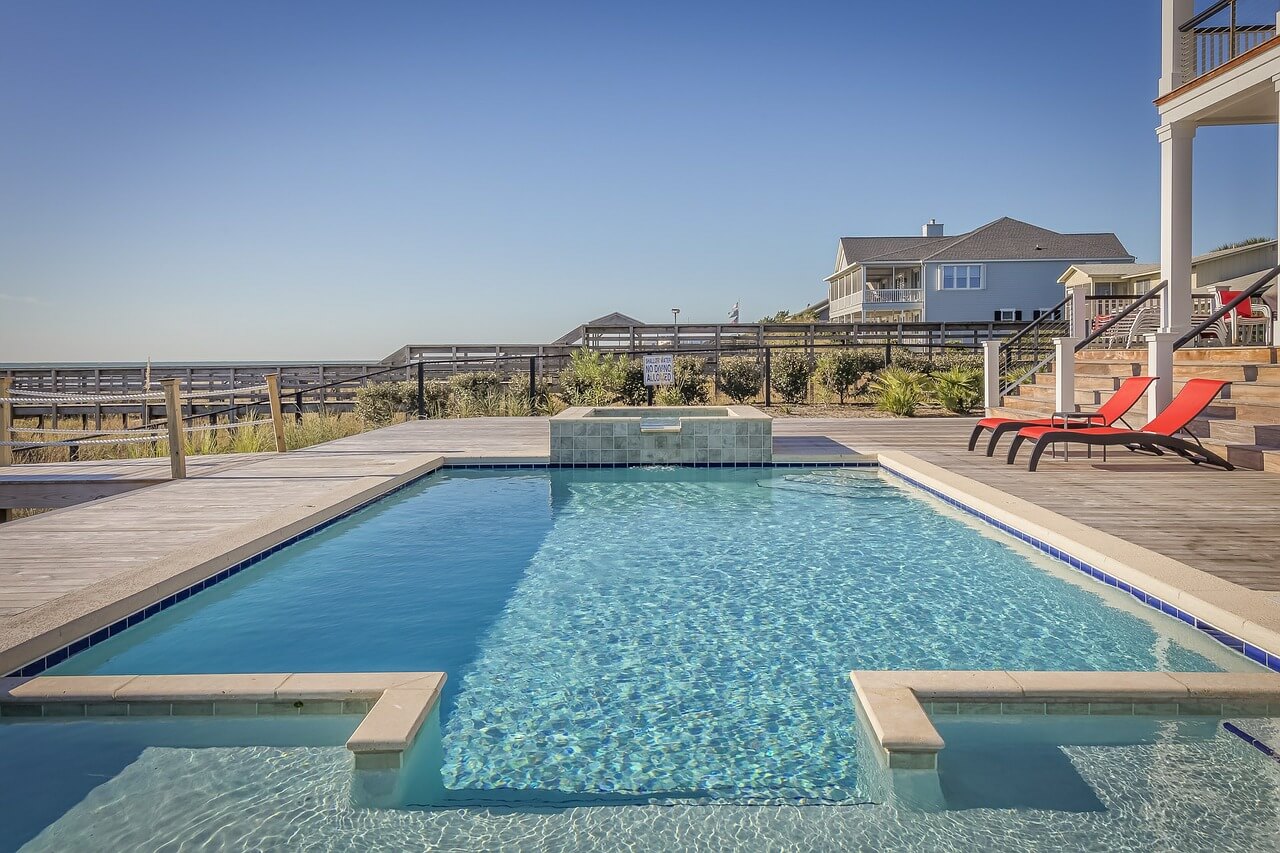
Looking for safe fun? Then the pool wins
With Croats enjoying the reputation of being ready to help and watching over others, and even with some of the beaches having lifeguards, pools are definitely the safer option if swimming isn't your strong side. The majority of pools have a shallow and deeper end, and while the sea can suddenly become deeper than you what you've bargained for, the transition is much easier in the pool.
If you do get cramp or get in some sort of trouble, even if other swimmers don't respond, you can be sure that hotel staff will pull you out just in time. The rules of conduct (which you have to oblige to) ensure your safety and that of the other guests. The limits of a pool can make it easier for you to watch over your kids while they have safe aquatic fun. In addition, sea urchins or painful rocks on which you can hit yourself while entering the Adriatic, as well as small pebbles that can be annoying on the soles of your feet, aren't an issue in a controlled pool environment. 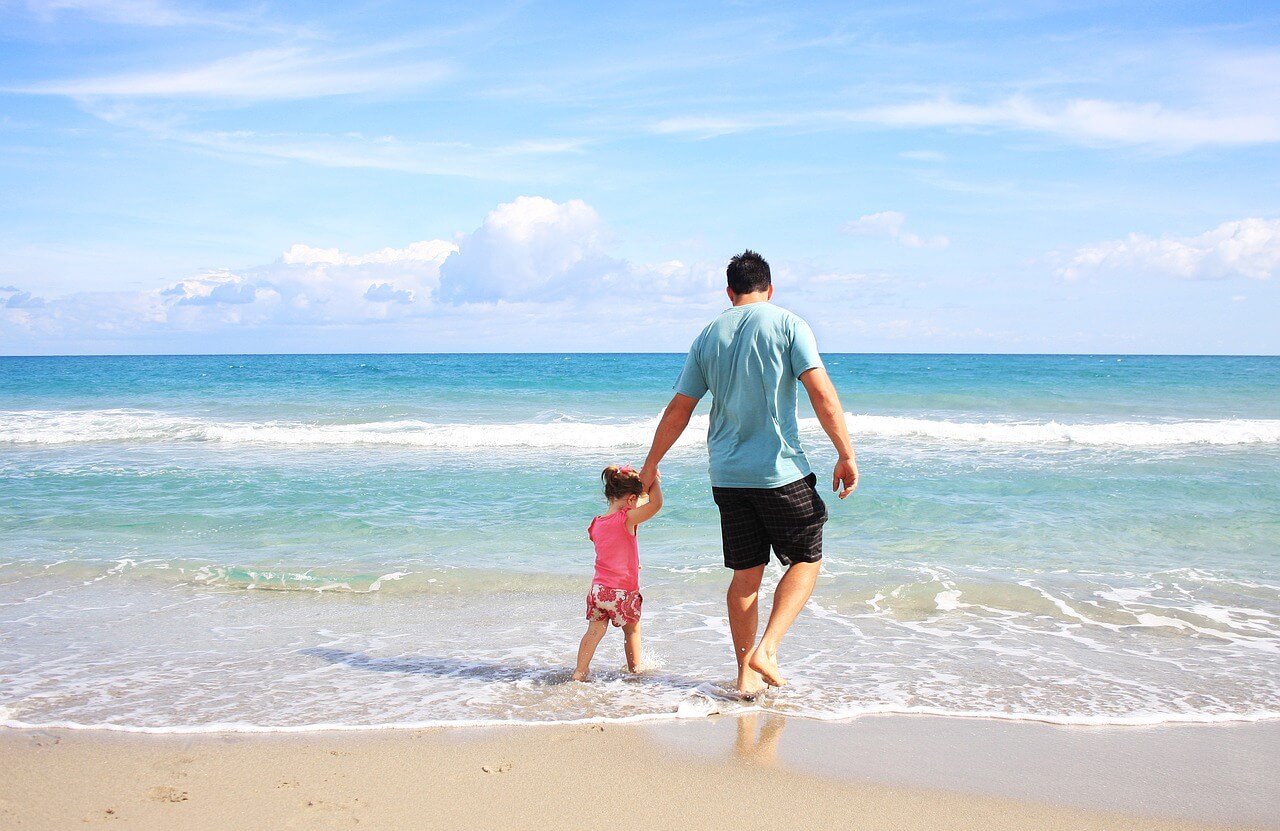
Looking for space? Then a Croatian beach will win
If you feel claustrophobic in the small and typically confined limits of the pool, then a Croatian beach is the best place to go for a longer swim. With experienced swimmers being able to swim from one side of the pool over the other, the sea provides a better challenge in terms of routes and directions you can take. Additionally, pools can be quite crowded, and if you want to take a refreshing dip as some ''zen'' time for yourself, then chilling in the Adriatic can be done at a more considerable distance from others that came to enjoy the day.
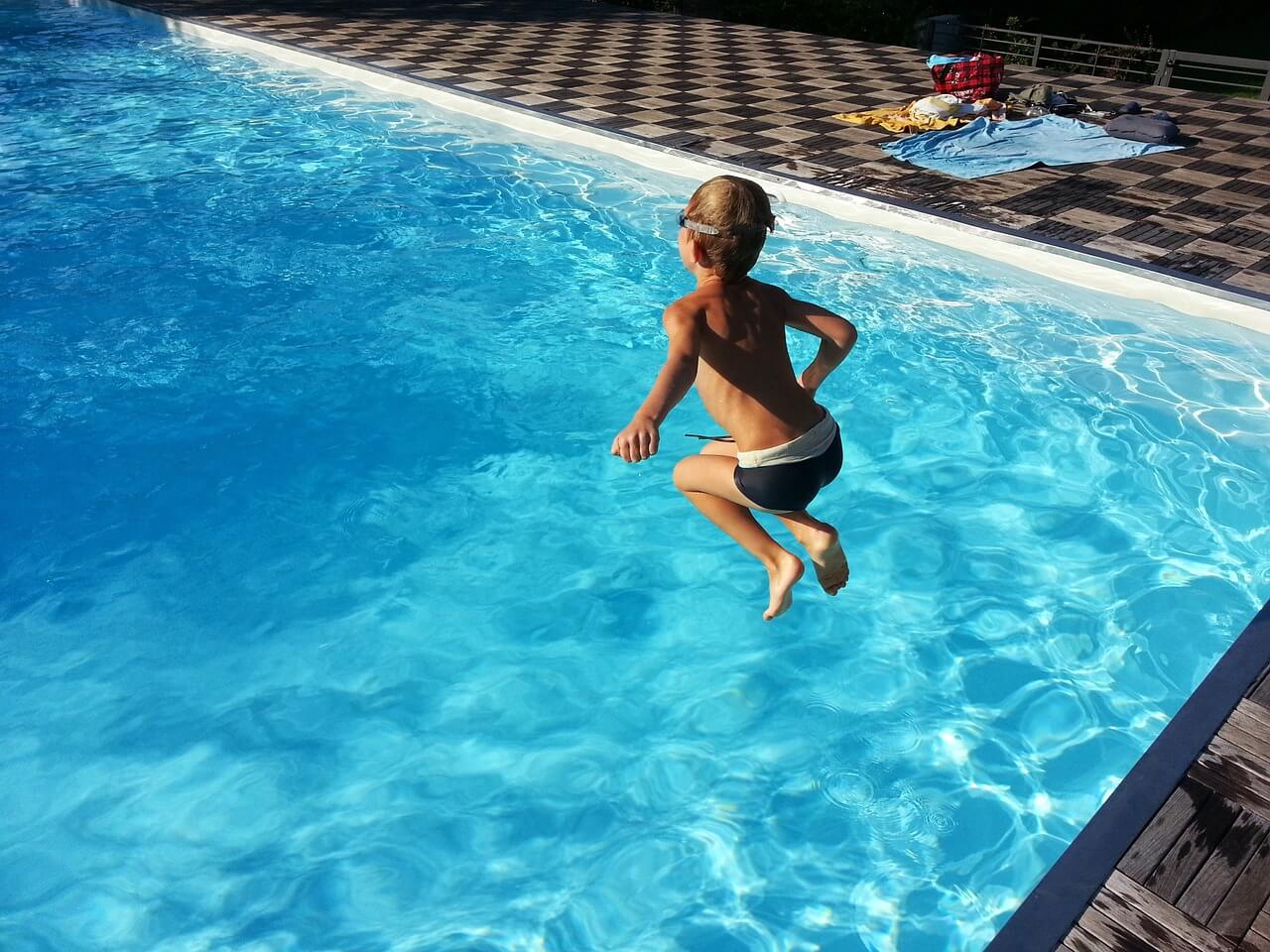
Do you fancy a space reserved just for you? Head to the pool
We all know that moment of frustration when a beach is crowded like hell, and you just can't find a place to leave your towel for the life of you. As pools are limited to the guests of the hotel, you can rest assured that when you arrive poolside, you'll manage to be able to find a place to soak up the sun and get a nice tan after you're done with swimming as the hotel calculates the maximum number of people that they can accommodate at any one time (at least the good hotels do).

Broadening your circle of friendship? Then a Croatian beach wins
With the Croatian hotel scene being more and more frequently branded to attract certain clientele, those who are interested in meeting new people on holiday, can expect that other guests in the hotel are similar to them in terms of interest and lifestyle. That's great, but keep in mind that other guests may just be interested in chilling, eating, and sleeping in the hotel, and not really socialising. On the other hand, the world of the Croatian beach is much more dynamic and with long history of interesting real and fictional stories (in books and movies) about awesome friendships and passionate relationships which started with an exchanged glance at the beach; the beach is the place to meet new people.
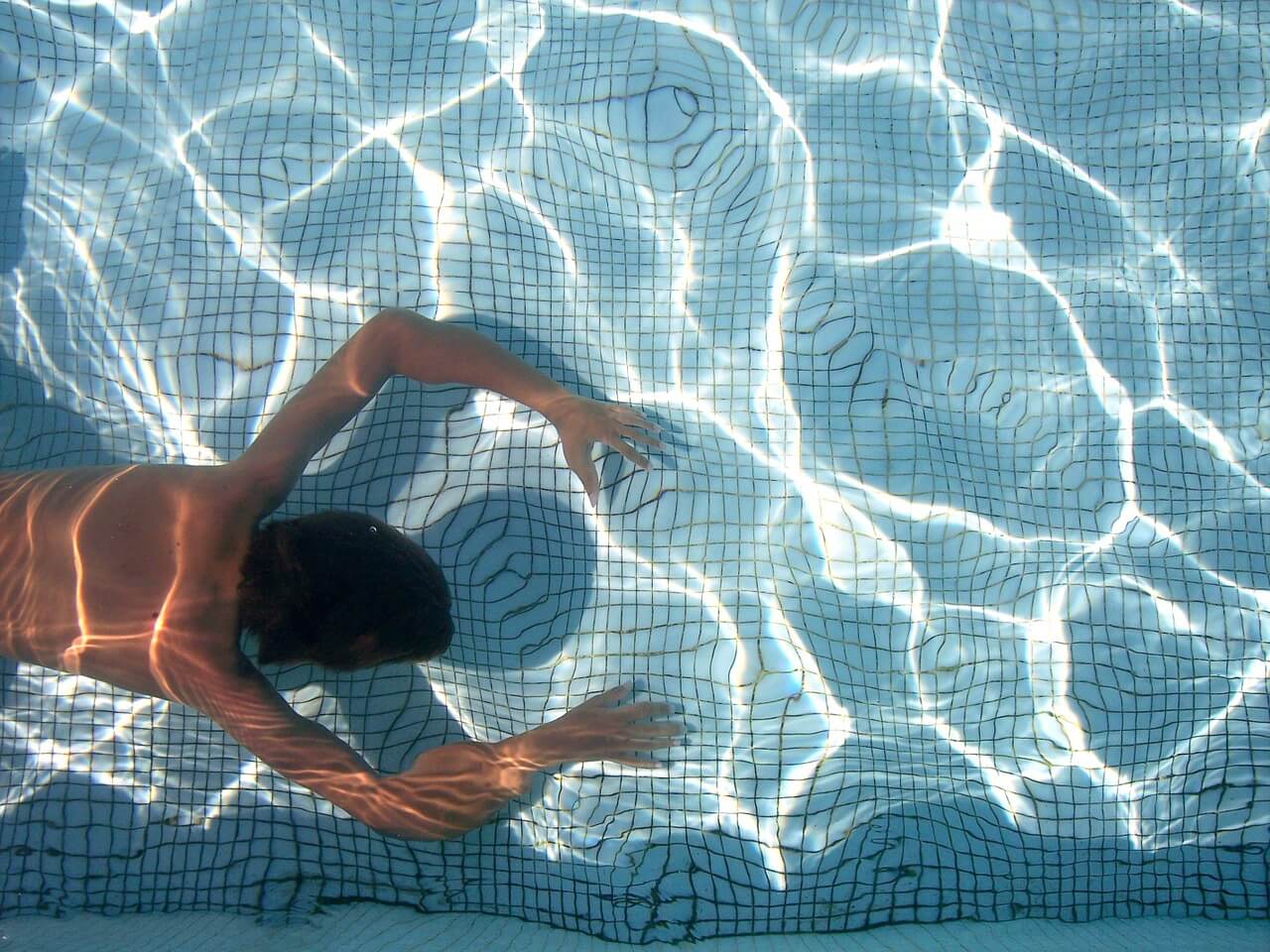
Want to be content with the water? The pool wins
When it comes to the Croatian beach offer, there are many types to choose from. Some beaches don't only offer unhindered access to the beautiful Adriatic as their lure but also much more, such as flotation devices to waterslides, sunbeds, and more. That said, certain pools also have more content than another. But, as a guest of the hotel, you can use everything that has been included in the price of your stay, while beaches (in the majority of cases at least) charge extra for these additional features. 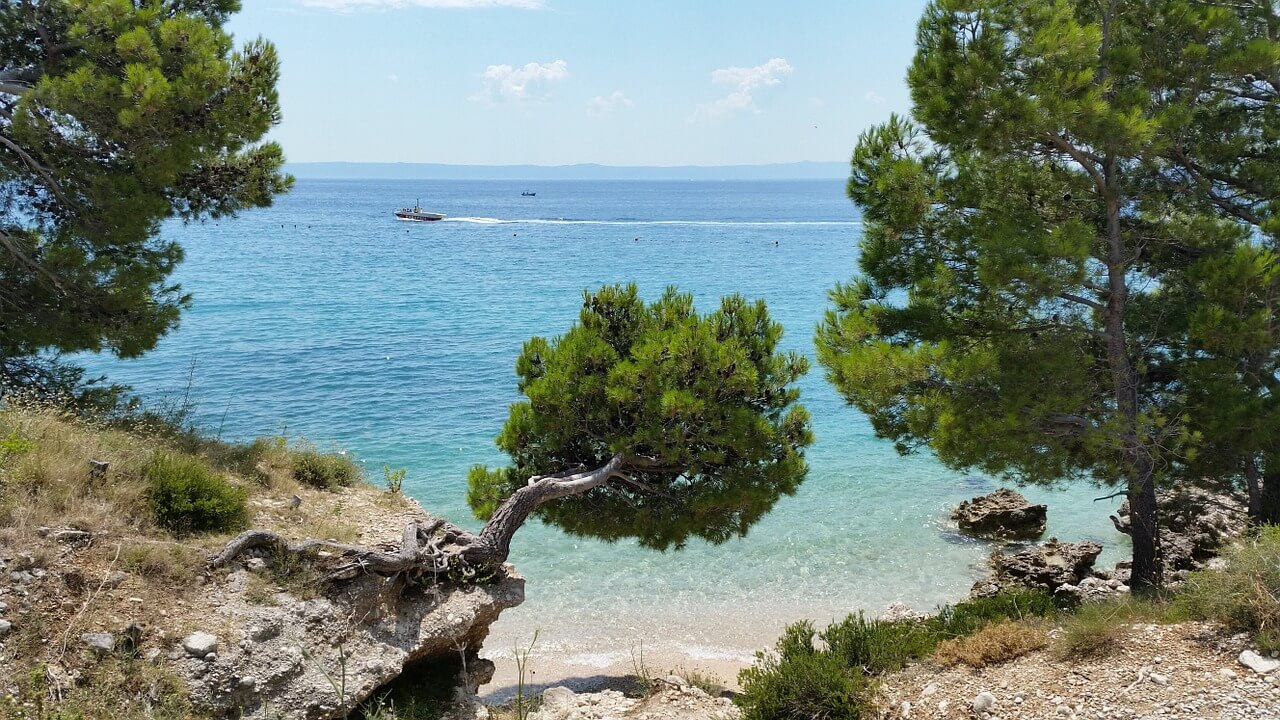
pixabay
Do you want to experience nature at its finest? Then the beach wins
With pools being man-made, they lack the joy of coming across unexpected discoveries which is what the sea offers. From pebbles to seaweed or sand underneath you to fish and other marine life sharing the swim with you, your experience in the Adriatic isn't just an opportunity to relax and freshen up but also to connect closely with nature. When a wave comes, those who are more in the market for excitement will surely have their blood pumping that bit harders as they are carried by the waves. You can also lie on the beach and enjoy the zen the sound of calm waves brings free of charge.
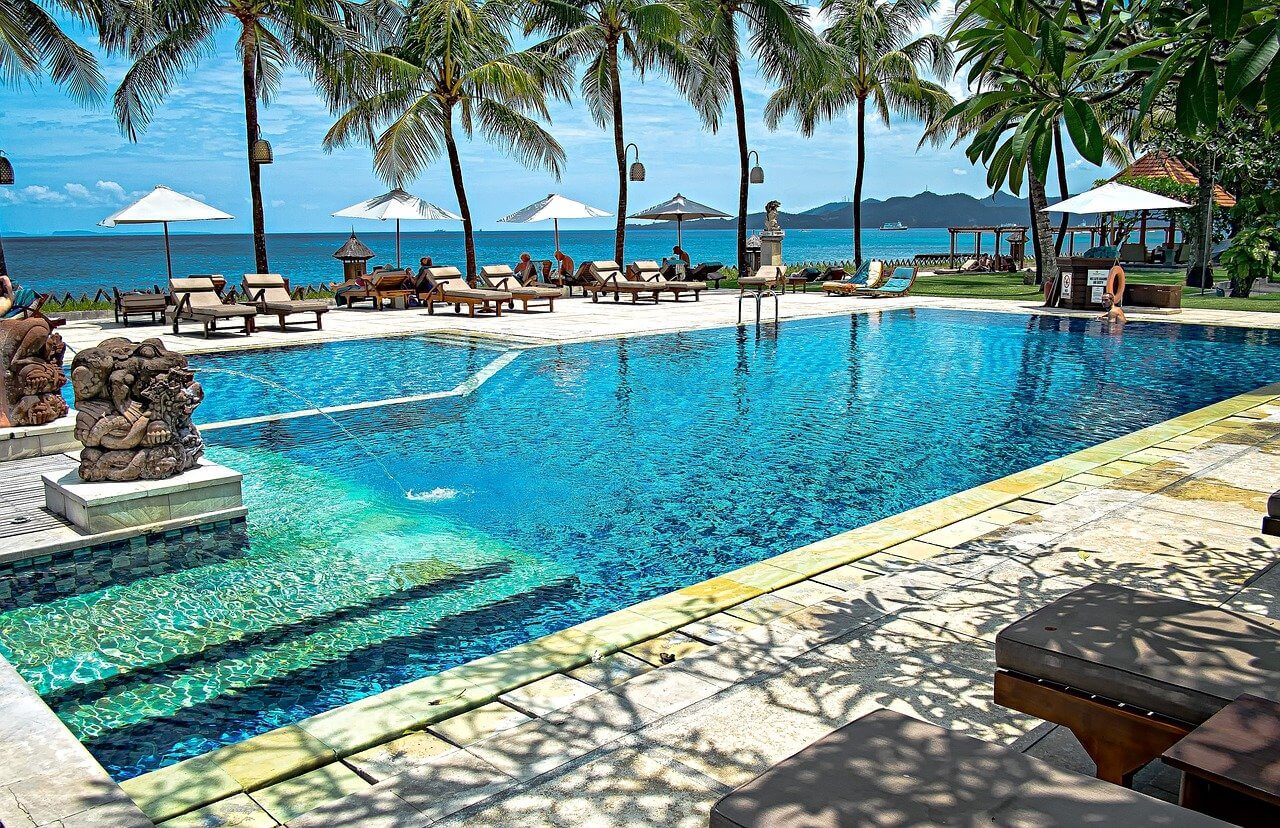
If proximity is what you're after, then the pool wins
When you're searching for a hotel, you probably want the one which is as close as possible to a beautiful Croatian beach. However, if you're a bit of out shape (with no desire to really improve that), and you learn that the promised three-minute walk to the beach lasts up to seven minutes or more at your pace and you just don't feel like walking that much as the heat is draining the life out of you, then the pools are right there inside the hotel complex. The only way to dive in for some aquatic refreshment faster is to take a shower in the hotel room, but really, where is the fun in that?
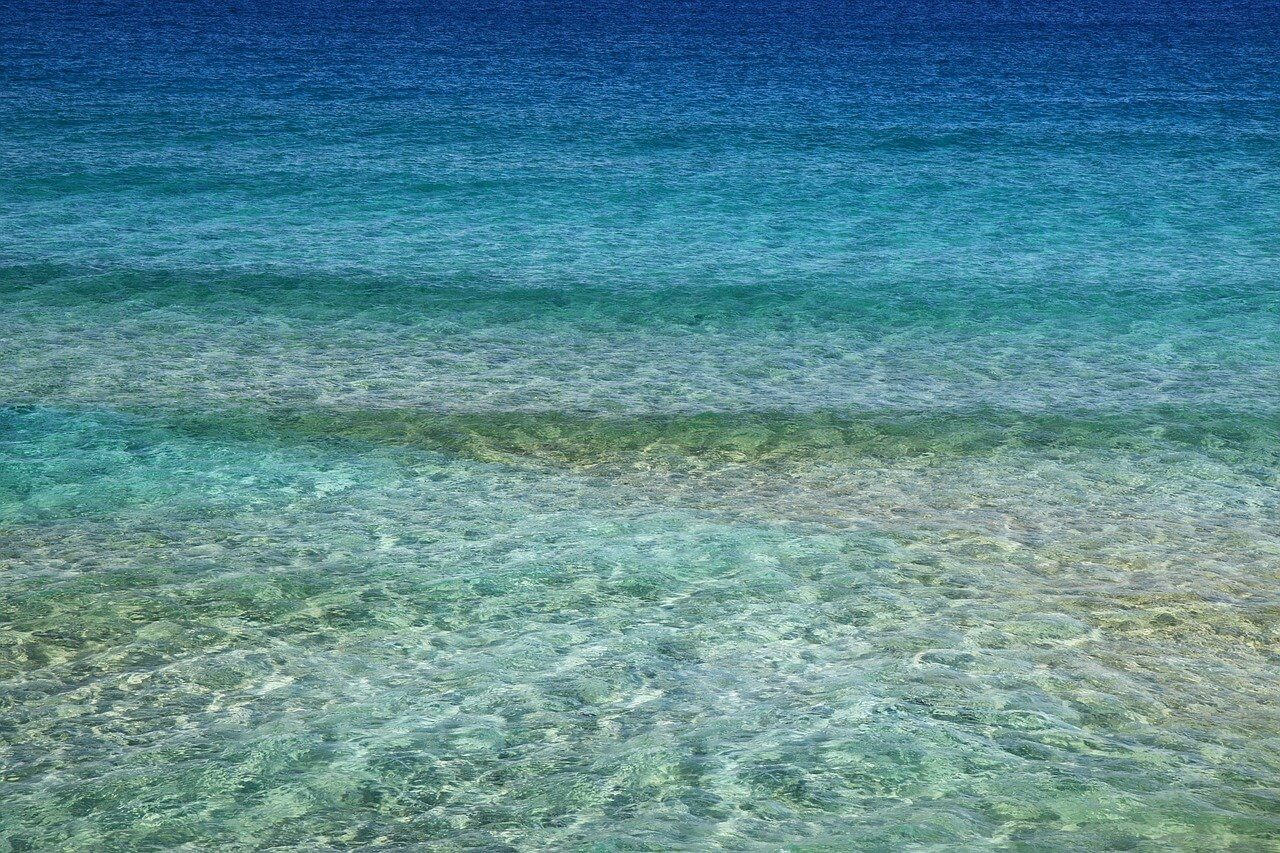
Viva la anarchia! – The beach wins
As mentioned above, pools are safer, not just because of their size and safe terrain, but also because of the rules they have. That said, if you've arrived at your destination listening to the greatest Sex Pistols hits and that little anarchist in you ready to get wild, head over to the beach to learn a whole new meaning of freedom. Swim where you want, jump from wherever you want (at your own risk, of course), and as long as you don't pollute the sea, pose a threat to other people or endanger the native marine life, where your sense of creativity ends is your only limit. Swim any time you want. You don't have to take a shower before diving in, and as many Croats will whisper to you in a clandestine manner when nobody is listening: you're free to pee in the sea if you need to.
The Croatian coast has you covered - the choice is yours
These are some of the arguments to help you decide would you prefer to be by the pool or next to a Croatian beach. Since the Croatian coast can offer both salty and freshwater options for your enjoyable holiday, it's best to try out both.
Learn more about beaches in Croatia on our TC page.
For more about the Croatian Adriatic Sea, follow TCN's dedicated page.
Tax Relief Proposals by Hospitality Sector Reps not Accepted
ZAGREB, 27 July, 2021 - Finance Minister Zdravko Marić on Tuesday did not accept proposals for a lower VAT rate on beverages and to treat labour costs as a tax deduction, while a representative of restaurant and bar owners said they would have to fend for themselves the best way they can regarding future challenges.
"My message to all restaurant and bar owners in the country, notably those who run bars, is that a very demanding period is ahead of us and that they will have to seek new loans and funding, despite the fact that we had yet another constructive meeting with the finance minister today. We can hope that in a couple of years we will have better working conditions because now that is not the case and we have not come across any understanding in regard to our proposals," Jelena Tabak, who heads the NUU association of restaurateurs, said after the meeting.
Marić recalled that a lower VAT rate was already in place in the tourism sector for accommodation, food and for the serving of food and that beverages were the only products for which VAT had not been reduced.
Commenting on the proposal to exclude labour costs from the base amount for the calculation of the VAT rate in the hospitality sector, the minister said that neither Croatia's nor the EU's tax systems recognised such a measure.
"In terms of taxation, labour costs are indeed recognised costs but in systems in which they should be recognised - the income and profit tax systems. We cannot mix direct taxes with indirect taxes such as VAT," he explained.
Marić recalled the government's measures to help the business sector, from lower taxes to the cancellation of individual contributions, as well as expanding the scope of nontaxable income, which, he said, had resulted in a rise in employment and wages, as evidenced by statistical data.
He recalled the government's job-keeping measures and coverage of fixed costs in the hospitality sector, stressing that data on fiscalisation showed that the hospitality sector had solid results and that the real peak of the tourist season was yet to come.
Dražen Biljan of the bar owners' association of the NUU Zagreb branch said that they were not happy that their proposals were not accepted and that lowering VAT on drinks would not cost the state too much, around HRK 400 million. It would, however, mean a lot for restaurant and bar owners, he said.
For more about politics in Croatia, follow TCN's dedicated page.
Croatian Hospitality Sector Says New Measures Will Destroy Them
July the 6th, 2021 - The Croatian hospitality sector is once again set to face the brunt of the epidemiological measures, stating that this will destroy them and that they may as well close their doors now.
As Poslovni Dnevnik writes, in addition to working only part-time, they are now no longer allowed to serve customers inside the bars and the current Croatian epidemiological measures have halved the number of tables they have available. As of July the 1st, facilities operating within the scope of the Croatian hospitality sector, such as cafes and cars, are not allowed to serve anyone who isn't sitting down at a table.
Just when some glimmer of hope that 2021's tourist season would be more similar to the one from pre-pandemic 2019 arose, the National Civil Protection Directoate has again stomped on that light.
The ban on serving guests who aren't sitting down at a table, if such a rule is adhered to at all, will see all of the bars on the steps in the Old City of Dubrovnik close their doors, Jutarnji list writes. These are all bars that have most of their tables inside, there are maybe two or three in front of the bar, and their main "terrace" is their steps.
''What they're doing is so funny, these rules have literally nothing to do with anything,'' said Albert, the owner of the Alberto bar in the heart of Dubrovnik's glorious old town. Just a little tucked away from Stradun, the restaurant lives off guests who assume their ''sitting positions'' on hard stone steps coupled with soft, spongy cushions.
''We've got 18 chairs outside, the others are standing or sitting on the steps. If they really insist that we all adhere to these measures, we can just close the bar now. Last year, in June and July, let us work until 02:00 in the morning, and then in August they brought us back to midnight again,'' this angry bar owner explained.
Albert took over this bar back in February last year, exactly 27 days before the pandemic struck Croatia and the very first lockdown.
''The money I had, I invested everything here. About half a million kuna. Until then I worked for others, now I needed it for myself, and I have three children and the bar is the only income for my family,'' he said.
He managed to sustain the business thanks to state support. If he hadn't been getting paid, he doesn't know how he'd have survived it all.
''I'd also like to ask them just where someone will work for 4000 kuna. We’ve done very little since I opened it, and now this. They just don’t let me work. One step forward, five steps back. And how do they intend to ban people from sitting on the stairs? Someone comes here and sits down. Drinks are served. What are they going to do, send the police out to come and arrest people?!'' Albert asked.
Other Croatian hospitality sector workers down in Dubrovnik also agree that the decisions being made by the National Civil Protection Directorate are idiotic and reckless. The issue will likely also affect many other Croatian destinations where sitting on the steps is the norm, including Rovinj in Istria.
For more, follow our business section.
Quarantine Escape or Something More: How French Youth Live In Croatia
26 June 2021 - One TCN intern interviewed four young French people who recently moved to Croatia about their everyday life, impressions, and preferences here. A look at how French youth live in Croatia.
They came to Croatia for different volunteering projects regardless of coronavirus pandemic, but likely would recommend their new abode to fellow countrymen as a good place to survive quarantine. The luckiest of them Mathias (26) got a chance to arrive in Split in February 2020, Axelle (22), and Clemence (22) joined him nearly a year later. Mathilde (23) came to Zagreb sometime between this period, in September 2020.
Is the weather similar to Nice?
The climate is continental – low temperatures in winter and high temperatures in summer. “In Zagreb, there is often a fog during the winter,” Mathilde shares. Thick fog looks unusual for newcomers and from time to time creates true ‘Silent hill’ views in Zagreb country. “It’s not windy, but you don’t see the light of the sun during two months,” she continues.
On the contrary, Split is a windy city, however, even during the winter the sun shines a lot. There are winds in France, Mathias notes. He fails to find a French analog to the well-known Split ‘bura’, a cold north-west wind that long till 10 days in winter. But there is ‘mistral’ wind in France, similar in the name and effects to Croatian ‘maestral’ that comes to Split from the north-east in summer.
If you’re sensitive to weather, you’ll probably feel winter winds in Split. Summer winds will help you. The wind cools the atmosphere, thus summer heat is handled easier in the Dalmatia. Axelle and Clemence who came to Split for spring and summer characterize the weather solely as perfect. Both moved from the northern part of France and began to enjoy sunbathing here. Mathias compares the climate in Split with Nice. “Similar in many senses… Apart from the landscape – there are more islands and mountains in Croatia,” he said.
Is air-con needed?
My French respondents almost don’t use air conditioning. Mostly they don’t have a need for it. Axelle actually doesn’t know whether there is any air conditioner in their office. The office is situated on the first floor, it’s cool there. As for apartments it’s normally equipped with air conditioning systems. However, girls in Split are satisfied by shade from the inner yard of their house. During the summer, they just open windows wondering for what purpose these double shutters are designed. They’ve never met such a design in France. Mathilde doesn’t use the air conditioners for ecological reasons. It pollutes the atmosphere a lot.
Why do you apricot jam in a croissant?
Young people are usually simpler with food. Two of them are vegetarians, but they easily adapted to Croatia. “In France, we consume a lot of cheese,” Axelle claims. You can buy some basic cheese here like Emmental, you can buy soft cheese like mozzarella and feta. Mathias who isn’t a vegetarian, but a foodie confirms that fact. “There is a huge lack of French cheese .” You’ll survive, but you’ll miss cheese. “I need cheese in my life,” Axelle says and goes to buy it without looking at brands.
On the plus side, there are many fresh vegetables in Croatia. Mathilde enjoys visiting open markets – you can talk, practice Croatian, create links with people, and support local producers. And prices are cheaper than in the supermarket. Furthermore, the open market challenges your traditional tastes. While as in supermarket you’re guided by familiar names on the shelves, open market encourages you to improvise and try something new. Clemence started to eat much more vegetables in Croatia. Mathias who also visited the fish market has enriched his nutrition with seafood.
Food prices in Croatia are lower than in France. However, moving here you should configure your expectations correctly. Prices are lower, but not really low. And, of course, this isn’t about imported items. As a result, Clemence eats less ‘Nutella’ here. Hopefully, it was not a huge loss. Mathilde praises Croatian pastries, whereas she loved French pastries as well. ‘Burek’ is a universal pleasure; it has vegetarian options with cheese or spinach. ‘Burkifla’ or ‘strudla’ are a nice choice for the sweet tooth. The only stuff you should be careful with is a croissant. In Croatian bakeries, they often offer croissants with apricot jam (‘marelica’) and French often describe its taste as disgusting. Just clarify on a cashier that you want a normal croissant!
Wine is wine, if you do it in France, you’ll probably die!
Apart from croissants with apricot jam, one more strange thing the French can occasionally order in a cafe is coffee with cold milk. It’s better to specify what kind of milk you want – hot or cold, because during the summer season Croatian cafes often serve coffee with cold milk as in southern Europe. Axelle came from northern France and never expected to have something hot ordering a coffee. Otherwise, typical for the Balkan region ‘Turkish coffee’ is rarely found in modern Croatia. Expats including my respondents from France don’t like it. “First 2-3 sips are ok, but next you feel this nasty coffee ground…”
A coffee drinking culture must be attributed to the advantages of life in Croatia. You can take one coffee and stay for 3 hours. “You can’t do it in France. If you stay more than an hour, it’s anticipated you will order one more coffee or another drink,” Axelle explains to me. And it’s not only about the economics of cafes. In France, you sit in a cafe for half an hour and then go back to your business. In Croatia, there is this chill way of life. You drink a coffee, chat, and sunbathe, and don’t hurry. Croatians consume a lot of coffee. When it’s too much for Clemence and Axelle, they switch to beer. Mathilde hates coffee, however still has a lot of Croatian friends. She drinks hot chocolate. She misses 'churros’ to hot chocolate.
Mathias spent enough time both in Split and Zagreb and would prefer Zagreb cafes and bars rather than Split ones. Such places have more variety, events, and different peoples there. Mathilde who is been living in Zagreb for almost a year doesn’t attach importance to it. She’s not a huge bar lover. She settles for ‘Antibar club 44’ where she holds her French evening with students. Axelle and Clemence also have their favorite place to drink in Split. In ‘Tri volta’ there is no crowds or fancy drinks as ‘ice coffee’ or ‘Aperol spritz’, but the location and atmosphere are great.
In public drinking beyond bars and its terraces, the biggest surprise for the French was a way of drinking wine. Croatian youth usually dilute wine. Red wine plus coke has the special name ‘bambus’. White wine is diluted by sparkling water. Both kinds of wine can be watered down. This practice has a simple explanation: diluting enhances the taste of cheap wine that youth usually buy. Also, this practice is known in Italy and Spain, but not in France. Wine is wine, Axelle claims emotionally. “If you do it in France, you’ll probably die!” Clemence echoes.
Let me pay for anything!
Nobody from my young respondents spends much money on entertainment mainly because of plenty of outdoor activities. Mathias became a true expert in hanging out with people in Split. This activity requires only being at the right place at the right time. That is late in the evening on Matejuska pier and after midnight on Ovcice beach. Girls prefer Matejuska, because the public is more varied there. Youth and locals gather on Ovcice beach. In fact, Axelle and Clemence once visited the Croatian party where they were the only foreigners. It was not bad, however, it’s certainly easier to start a conversation as the majority speaks English.
Axelle shares that she would like to visit the ‘Froggyland’ museum in Split. Till the moment she didn’t manage it. With Clemence and other friends, she also tried to go to the cinema, but finally, it was ‘sold out’. Split actually discourages finding these kinds of entertainment. When you have leisure time, go straight to the beach, read a book in the shade, relax, run along a coastal line – there are so many easy ways to enjoy in Split. Mathias concludes that museums didn’t impress him and the cinema was normal. You can watch original American or French movies with Croatian subtitles.
Mathilde has succeeded to go to the cinema about 10 times. Interested in art she visited several museums in Zagreb. She’s visited once a classical concert at the Croatian National Theater. It’s a pretty good cultural gathering, although Mathilde recognizes that she would have better if it were not for the language barrier. She doesn’t go to the cinema or museum spontaneously, only when friends invite her. A pleasant surprise is that an inviter pays. Croatians are very welcoming and open people, thus you often fall into situation “Let me pay for anything!”
Where is the name of the bus stop?
Croatian hospitality is one of the reasons to make traveling your hobby here. Mathias and Axelle recall the other reasons. Croatia is a comparatively small country, most destinations are easily reached. There are a lot of historic towns, wonderful nature places. Islands aplenty stand alone. “You go on the islands and suddenly feel like you are in another county on vacation. I like island vibes!” Axelle and Clemence visited Vis together loved the nature of the island-geopark.
Zagreb is a student city in Croatia. There are more students and more expats as well than in Split, therefore society seems more liberal and open-minded. Varazdin looks like a typical Central European town. Pula is pretty boring during the winter, but nice in summer, Mathias lists his travel within the country. “I’m not a fan of Slavonia. This is not a region for tourists, except Vukovar, maybe, for those who are interested in history. It’s good to visit when you live in Croatia for a long time,” he says.
Split is a very special story. Mathilde surprises by its closeness to mountains and sea. French who constantly live in Split loves it for a combination of historical heritage and daily dynamic life. “Diocletian’s palace is a miracle, Clemence tells. I like to go for a walk there. And now after many walks, I can say that I really know it.” Axelle stresses one more advantage: “A lot of sights are situated next to Split – Solin, Klis fortress, etc.” Omis, a tiny city with rocks is suited for hiking, meanwhile, there are enough hiking places just by the way from Split to Omis.
In regards to transport within the country Mathias’s used to prefer trains in France. A train as a comfortable and ecological means almost doesn’t exist in Croatia. It’s a disadvantage. But my French respondents quickly learned how to deal with buses. They usually travel by bus. The fact that bus stops in Croatia have no names was a little challenging for the first time. Axelle remembers how she was checking her way on Google maps. “It just takes some getting used to. In France each stop has a name.”
Could you, please, write down the name of this movie in Croatian for me?
“I don’t see any difference in culture between France and Croatia,” Mathilde states. The point is that the French consider ‘culture’ as a broad concept, barely the same that ‘civilization’, i.e. Croatia relates to the same European Christian civilization as France. Looking in-depth Croatian culture is not well-known in France.
Axelle purposely read about Croatia before coming here to have basic grounding. After 4 months in Split she knows, for example, Split raised pop-diva Severina. Clemence listens to rapper Nucci. Although he’s from Serbia, his music can be related to the ‘Balkan turbo-folk genre. They would like to know more popular songs, movies. etc. Croatians are glad to recommend some good stuff, but a problem is that they pronounce names in Croatian, and it’s difficult to catch and to remember too.
'Pomalo’
My respondents note the obvious visual difference – there are only white people on the streets. Society is more homogeneous. Dress is more homogeneous as well – no brassy, no sexy. “Don’t distinguish yourself,” the Zagreb expat concludes. Otherwise, Mathias and Clemence report that in Split people care about appearances much more, than in cities of France. Clemence is used to seeing fancy girls with big sunglasses and other attributes in Split every day. “Even on Monday morning… Once I was walking down the street in my probably worse-than-usual, after-party look. These girls looked at me really oddly…” she remembers.
Streets are cleaner in Croatia. It’s clean in France, Axelle stands up, but you can see some trash from time to time. Croatians are not taught since childhood to sort the garbage, to recycle as much as it’s done in France. “From the first glance they seem less informed, but in real life they’re more concerned,” Clemence shares her observations. Streets are safer too. “I feel really safe here. I have no fear,” French girls from Zagreb and Split agree in this. In France, you’d better go in a group of 2-3 girls together at night. And anyway somebody will impose a conversation, follow you. In Croatia, you can calmly be alone on a street at any time.
In memory of their blissful stay in Split two of my respondents and one more French girl did tattoos with the Croatian word ‘pomalo’. It’s literally translated as ‘slowly’, ‘quietly’, ‘little by little’. “Our tattoos mean more than literal sense. I mean more when I say ‘pomalo’ Clemence explains. ‘Pomalo’ commonly used to describe a Dalmatian/ Croatian mentality in one word: ‘take it easy’, ‘don’t rush’, ‘with pleasure’, ‘relax’, ‘hello’, etc.
For more, follow our dedicated lifestyle section.
French Institute in Croatia Launches Hospitality Programme
ZAGREB, 4 May, 2021 - The French Institute in Croatia has on the occasion of its 100th anniversary launched a Hospitality programme which in cooperation with various institutions enables close public contact with artists.
The programme is adapted to Croatia's specific context, featuring the consequences of the health crisis and earthquakes that hit Zagreb and Sisak and Petrinja in central Croatia and is aimed at developing a programme of valorisation of Croatian artists in the premises of the French Institute where they can present their works and establish contact with a new audience.
The planned encounters are aimed at enabling a privileged experience and relationship with artists and their works, something that has been absent during this period of restricted encounters.
The institute has called on artists to participate in the programme, saying that they will be issued with a 'carte blanche' to take over the institute's premises for specific encounters with the public and to present their works.
For more about diplomacy in Croatia, follow TCN's dedicated page.


